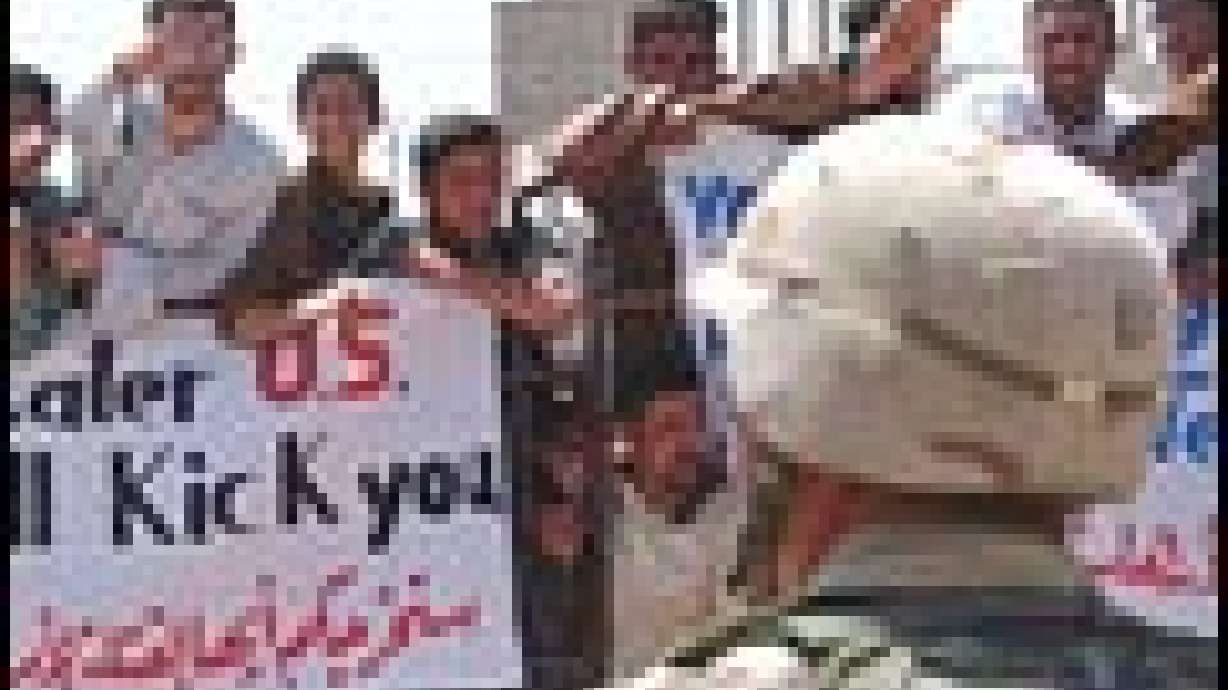Estimated read time: 3-4 minutes
This archived news story is available only for your personal, non-commercial use. Information in the story may be outdated or superseded by additional information. Reading or replaying the story in its archived form does not constitute a republication of the story.
MOSCOW (AP) -- Russia, saying it will push for a central U.N. role in Iraq, began consulting Saturday with other Security Council members over a proposed U.S. plan that relegates the United Nations to a largely advisory position.
Russia and France -- two leading opponents of the U.S.-led invasion of Iraq -- have said they had questions about Washington's proposal for a U.N. resolution on ruling postwar Iraq.
Deputy Foreign Minister Yuri Fedotov said that in particular the draft "fails to provide a clear picture of the transition from the U.N.'s oil-for-food program to the lifting of international sanctions against Iraq."
During discussions of the U.S. proposal, Moscow will again "underscore the need for the United Nations' central role in this process," Fedotov said, according to the Interfax news agency.
But objections have so far been muted, with the council's 15 members hoping to avoid the bitterness that broke out in pre-war debate.
The U.S. draft, introduced on Friday, would give the U.N. stamp of approval to a U.S.-British occupation of Iraq for at least a year and give the Americans and British control of the country's oil wealth for rebuilding the country.
Under the plan, the United Nations would appoint a coordinator to work with the U.S.-British coalition, but the world body would have an advisory role, its influence limited mostly to humanitarian issues. Spain and Britain co-sponsored the resolution.
Fedotov discussed the situation in Iraq and the U.N. role there Saturday with French Ambassador Claude Blanchemaison and Chinese Ambassador Zhang Deguang, the Foreign Ministry said. The three countries all hold veto powers on the council and opposed the U.S.-led war to topple Saddam Hussein.
Chinese Deputy Foreign Minister Yang Wenchang will visit Moscow on Thursday to coordinate action on Iraq, the ministry said in a statement.
On Saturday, the 15 ambassadors of the Security Council were joining U.N. Secretary General Kofi Annan for an annual retreat in upstate New York, where they were expected to discuss the U.S. proposal for a special U.N. coordinator to work with U.S. and British administrators in Baghdad.
Experts from Security Council member missions were to study the draft at a closed meeting Monday at the United Nations. Council ambassadors will begin debate on the proposal Wednesday.
After that meeting, "we will have a better assessment of where everybody is," U.S. Secretary of State Colin Powell said Saturday.
"Initial reaction from capitals is everybody wants to move forward, a great deal of pragmatism, no re-fighting of the past, no screaming and shouting, if i could put it that way, but a lot of questions," Powell told reporters during a flight to Israel.
He said the questions revolve around control of oil revenues, the role of the U.N. coordinator and the coalition's plans on building a new Iraqi government.
French Prime Minister Jean-Pierre Raffarin said Friday that Paris welcomed the return of the Iraq issue to the U.N. framework.
"We are pleased to see that the United Nations is back in the debate," he told France's LCI television.
Fedotov echoed that sentiment and called the U.S. plan "viable," but he expressed some reservations.
Russian officials have repeatedly said that the sanctions, imposed against Iraq after its 1990 invasion of Kuwait, should be lifted but only after U.N. inspectors have verified that there are no weapons of mass destruction in Iraq.
Washington opposes the return of U.N. inspectors and has sent its own experts to look for banned weapons. The draft resolution makes no mention of inspectors.
Russian companies have enjoyed lucrative contracts under the oil-for-food program, which permits Iraqi oil to be sold to fund the purchase of humanitarian goods. The United States wants to phase the program out over four months and channel all Iraqi oil money to a fund controlled by U.S. and British authorities.
(Copyright 2003 by The Associated Press. All Rights Reserved.)








